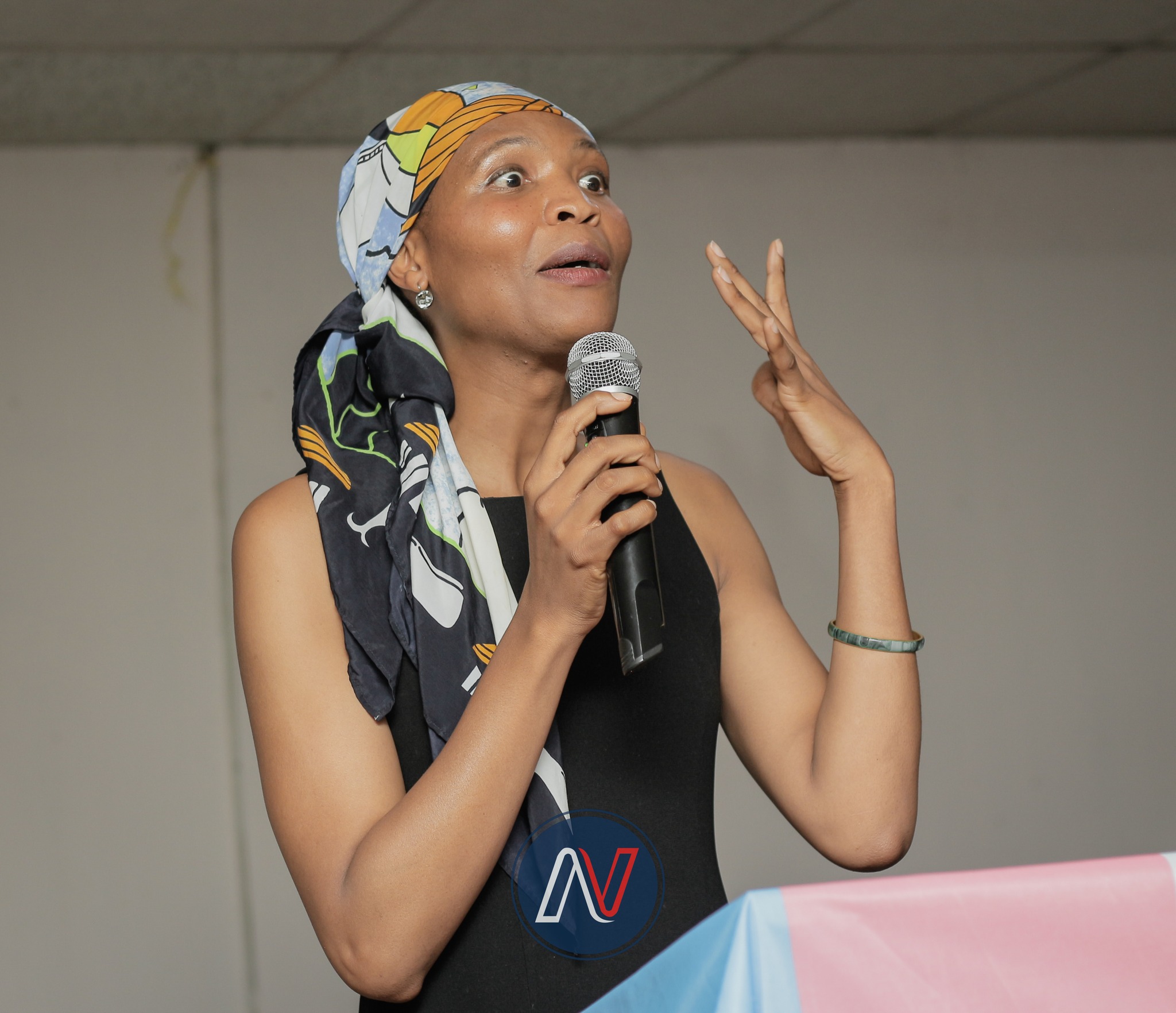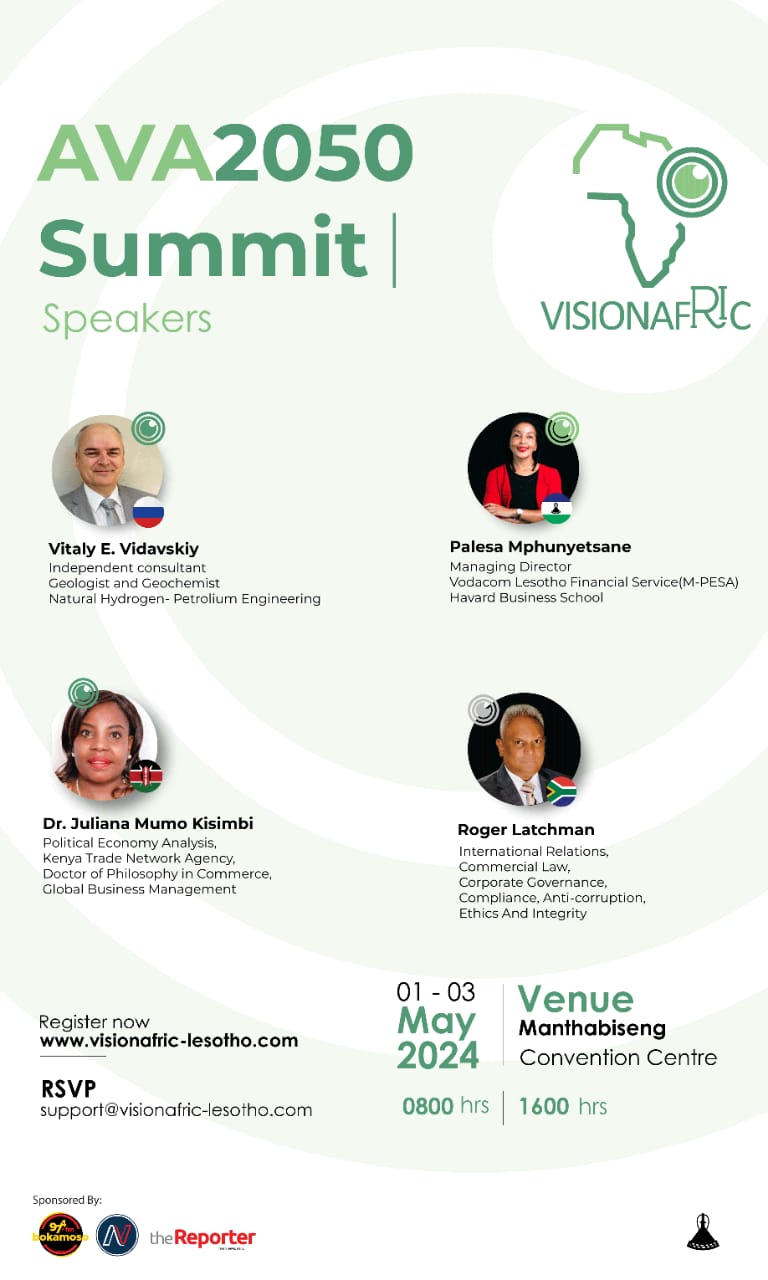Ntsoaki Motaung
At least one in three transgender people in Lesotho (36 percent) had been denied access to health care, and this is in part linked to not being able to change one’s gender marker in the identity.
International research, as well as analysis from Lesotho, suggests that not being able to change one’s gender marker has an impact on access to healthcare and maternal health and well-being.
Last Friday the People’s Matrix Association commemorated the Transgender Day of Remembrance, to memorialise those who have been murdered as a result of transphobia.
Representing the lesbian, gay, bisexual, transgender, intersex, queer, asexual and other sexually or gender diverse, (LGBTIQA+) community, the gathering revealed that members continue to be subjected to discrimination, stigma and abuse in Lesotho.
The day was founded to draw attention to the continued violence endured by transgender people.
The day commenced with a peaceful March starting at Setsoto Stadium in Maseru and ending at Victoria Hotel where the hall was decorated with rainbow flags and banners and people dressed in black attire.
During the commemoration, all of the lights were dimmed and attendees held lit candles, sang together, and observed a moment of silence in remembrance of transgender-identifying people who have suffered from discrimination and violence.
Giselle Ratalane, the Project Coordinator at the People’s Matrix Association, spoke of the myriad of challenges faced by transgender-identifying Basotho including assault and murder.
Ratalane said the transgender day of remembrance is celebrated every year on November 20 because, for generations, the transgender population has suffered various forms of abuse and even death for challenging the views, notions, and stereotypes around “male†and “female†identities.
“The day is celebrated in many countries as a day meant to honour, commemorate, and memorialise those who face discrimination and stigma, often on a daily basis,†Ratalane said.
“This holiday is also meant to advocate for transgender people’s rights and focus on the persistent struggles they face in their everyday lives, and how others can share their love, support, and hope,†Ratalane added.
Tampose Mothopeng the Executive Director of the People’s Matrix Association said most of abuse their members experience are assault, rape and murder.
“Most of the time our members are violated by the people they know. However, there are cases where they are violated by strangers,†Mothopeng said.
Mothopeng said one of the challenges lesbians face include being forced into marriages by people who believe they are “correcting them†to behave like women.
“Once parents realise that their child born to be a girl starts behaving like a boy, they force them into marriages with the hope that they will change, and they get to people they do not like. We have come across such cases although I do not have statistics, but such things do happen,†they said.
Mpho Theko while speaking at the commemoration said one of the greatest protective factors against harm, violence and trauma is to respect, listen, and learn from transgender and gender-diverse people.
She said the community can contribute to and celebrate the strength and resilience among transgender and gender-diverse communities, thus contributing to a meaningful impact on their lives.
Theko said trans remembrance day is meant to remember people who died in advocacy, the people who died from systematic injustice pleading for recognition.
It also remembers the people who sacrificed their lives to be at the forefront so that the coming generations can live without fear and the ones who felt it was better to commit suicide other than to experience the world for the beauty it is.
Gender officer of the ministry of gender, youth, sports, arts, culture and social development, Mahali Sekantši Rankone, said the ministry was doing all that it takes to sensitise other ministries, especially those that provide services about the rights of the LGBTIQA+ community.
Lineo Tsikoane Badia, the United Nations (UN) Human Rights Officer in Lesotho said the UN firmly believes in the equality of rights and dignity of all persons.
“Today we want to stand in solidarity and in space with transgender persons. Your rights are not different from any other person’s rights. As the UN we plead and promise to support and serve. To work hand in hand with you to strive for a better Lesotho,†Tsikoane Badia said.
According to the UN Human Rights, discrimination against LGBTI people undermines the human rights principles outlined in the Universal Declaration of Human Rights. Yet discrimination and violence against people in the LGBTI community are all too common. Homophobic, biphobic and transphobic attitudes remain deeply embedded in many cultures around the world.
“So long as people face criminalization, bias and violence based on their sexual orientation, gender identity and sex characteristics, we must redouble our efforts to end these violations,†Antonio Guterres, UN Secretary General, on 25 September 2018.
The UN says protecting LGBTI people from violence and discrimination does not require a new set of human rights laws or standards.
States are legally required to safeguard the human rights of LGBTI people. This is well established in international human rights law. It is based on the Universal Declaration of Human Rights and other international human rights treaties.
Speaking at the workshop by OutRight Action International, a leading advocacy organization for the human rights of LGBTIQ people, the International Commission of Jurists (ICJ) held to engage the Lesotho judiciary on the human rights of LGBT individuals in the country, sometime ago, Lesotho’s Chief Justice, Sakoane Sakoane, summarised key legal developments in the protection of the human rights of LGBTIQ people.
Sakoane also emphasised the importance of ensuring access to justice for marginalised communities in Africa, including LGBTIQ persons.
Calling for the cultivation of an LGBTIQ-sensitive culture, the Chief Justice noted that in Lesotho, the LGBTIQ community factually exists as part of society.
He mentioned, however, that there is no local jurisprudence, yet on what these rights mean for the LGBTIQ community, even though the Constitution guarantees two important rights, the right to respect for private and family life (in section 11) and freedom from discrimination (in section 18).




